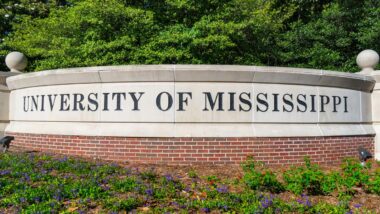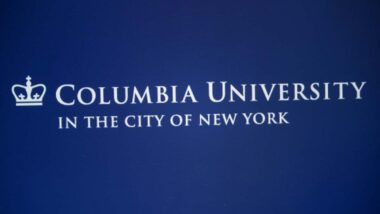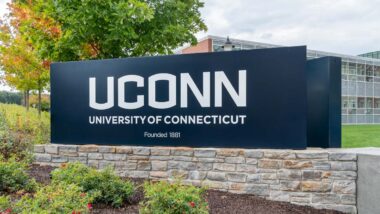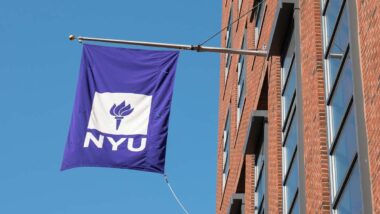Top Class Actions’s website and social media posts use affiliate links. If you make a purchase using such links, we may receive a commission, but it will not result in any additional charges to you. Please review our Affiliate Link Disclosure for more information.
In late 2019, the University of Phoenix was hit with a record-breaking $191 million lawsuit settlement by the U.S. Federal Trade Commission. At the time the largest settlement obtained from a lawsuit against a for-profit university, it resolved claims made by the FTC that the university had engaged in deceptive advertising strategies and made false claims about post-graduation job opportunities for students.
University of Phoenix Employment Promises
The university allegedly used misleading advertising campaigns that falsely gave potential students the impression that the school had partnered with companies including AT&T, Microsoft, Yahoo!, Twitter, and the American Red Cross in order to provide students with employment opportunities after graduation, according to the Federal Trade Commission’s case against the University of Phoenix.
The university may also have misrepresented its relationships with employers including Adobe, Avis, MGM, Newell Rubbermaid, and Sodexo. The ads ran from 2012 to 2014, and were part of the University’s “Let’s Get to Work” marketing campaign. In the ads, a Phoenix student is seen driving past parking spots in a university parking lot that are marked with the logos of these companies.
The FTC claims that the ads used by the University of Phoenix featuring these employers could give potential students the impression that the school had connections with these employers, or tailored its education to make its students specifically attractive to those companies. However, the school was not affiliated with any of those employers, and did not tailor its curriculum to the requirements of those fields.
Students who saw University of Phoenix advertising may have been falsely persuaded that by choosing the for-profit university for their education, they may be offered jobs by these employers upon graduation. This false belief may have led students to choose to attend University of Phoenix, rather than a non-profit university. Had they known that the University had not partnered with these companies, and they would not be at an advantage to be hired by these employers, students may have chosen a different or less expensive education option.
Recent University of Phoenix Settlement Cases
In order to settle these claims, the University of Phoenix agreed to pay $50 million in cash to the Federal Trade Commission. The university also agreed to forgive more than $140 million in student loan debt owed by students who may have been harmed by the deceptive claims.
The lawsuit claims that military and Hispanic students may have been disproportionately affected by the misleading advertising. The students who qualify for student loan relief through the University of Phoenix settlement were selected from applicants who first applied to the university between October 1, 2012 and December 31, 2016.
Although the University of Phoenix agreed to pay the settlement, a press release from the school following the case stated that officials with the university continue to believe that the school acted appropriately and did not make false claims. Additionally, the University of Phoenix settlement will not affect private or federal student loans held by University of Phoenix students, who may be required to continue paying off an education they chose based on misrepresentation.
How Does the FTC Protect You From Deceptive Advertising?
The Federal Trade Commission sets and enforces regulations for truth in advertising and product claims. According to the FTC, advertising on the radio, television, internet, or in print must be accurate and truthful. If a company makes a claim about their product, they must be able to back up that claim and prove that it is true.
Companies are not allowed to lie to consumers or deceive them about the effectiveness of their product or service. When the FTC discovers cases of misrepresentation or fraud, the commission may file a federal action to stop the misrepresentation, freeze the assets of the company or entity responsible for the deceptive advertising, and recover compensation for potential victims harmed by the misrepresentation.
In order for the FTC to intervene, cases of fraud or misrepresentation must be found to be likely to cause substantial injury to consumers and must not be outweighed by other benefits. In addition to regulating claims regarding a product’s value or effectiveness, the FTC also enforces claims regarding a product’s environmental benefit, fake sales, “free” products that turn out to have hidden costs, claims regarding jewelry and precious metals, claims regarding shipping time frames, claims regarding internet speeds, and subscriptions, guaranties, and warranties.
The FTC also governs claims regarding where a product was made, or the materials of which it was made. For instance, if a shirt has a tag saying “Made in the USA,” the company must be able to prove that it was. If a product has a label saying “Made from 100 Percent Cotton,” it must be accurate.
While the FTC often focuses on deceptive advertising about food, over the counter medications, dietary supplements, alcohol, and tobacco, it may enforce regulations pertaining to advertising claims for any product or service.
Other FTC truth in advertising lawsuits have been filed against dietary supplement retailers or manufacturers who failed to include accurate lists of ingredients on their supplement labels, CBD sellers who misrepresented the amount of CBD in their products, and dating sites that falsely claimed to users that they had matches waiting for them that they could talk to if they signed up for a paid subscription.
For-profit colleges and universities are increasingly coming under fire for potentially using misleading or false advertising tactics to get students in the door.
The University of Phoenix settlement is just one case of for-profit institutions facing elevated scrutiny in recent years. Forbes explains that on the whole, for-profit universities may play a key role in the United States’ current student loan crisis.
In many instances, for-profit universities provide poor outcomes for students, from low graduation rates to limited career opportunities, Forbes explains. Despite these poor outcomes, the schools reportedly benefit from public funding.
Many students take out extensive loans to pay for their educations. These loans are costly on their own, but their costs compound when taken into account with for profit colleges’ typically poorer outlook for graduates — for those who do graduate at all, that is.
To make matters worse, Forbes explains that for-profit colleges and universities often prey on vulnerable prospective students. Students who attend for-profit institutions are often economically disadvantaged students or those who are “non-traditional” students — those pursuing an education later in life.
Forbes suggests that for-profit institutions may use aggressive or even false marketing tactics to convince students to attend — and take out extensive loans to do so. In many cases, the students who may be susceptible to these tactics are those who “lack information about the higher education landscape.” These students may rely on the marketing provided more than other sources of information to discern whether or not a school is right for them.
Though for-profit institutions often present themselves to non-traditional students as a way to get an education while pursuing full-time work, the risks may outweigh the benefits, says Forbes.
How to Join a University of Phoenix Class Action Lawsuit
If you applied to the University of Phoenix due to the misrepresentation about potential job offers implied by the school’s advertising campaign, you may be eligible to join a University of Phoenix class action lawsuit.
Students who believed they would be offered a job due to implied relationships between the university and prestigious companies, who did not find a job in their field after graduating may be eligible to join. Filing a lawsuit can be a daunting prospect, so Top Class Actions has laid the groundwork for you by connecting you with an experienced attorney. Speaking with a qualified attorney may be the first step towards determining whether you have a case and are eligible to pursue compensation for these false claims.
Join a Free University of Phoenix Class Action Lawsuit Investigation
If you are a Texas or California resident and were misled by University of Phoenix’s representations about job prospects, and did not get a job in your field of study after graduation, you may be eligible to join a FREE University of Phoenix lawsuit investigation.
This article is not legal advice. It is presented
for informational purposes only.
ATTORNEY ADVERTISING
Top Class Actions is a Proud Member of the American Bar Association
LEGAL INFORMATION IS NOT LEGAL ADVICE
Top Class Actions Legal Statement
©2008 – 2024 Top Class Actions® LLC
Various Trademarks held by their respective owners
This website is not intended for viewing or usage by European Union citizens.

















79 thoughts onUniversity of Phoenix Settlement: Deceptive Advertising for Graduate Employment
These ads not only entice students they kept us engaged from inferred results. Count me in this too.
I don’t live in Texas or California, I lived in Missouri and University of Phoenix said they would help me get a job, never happened and I can’t even get my degree from them. Add me.
I am a Missouri resident. I was also a UOP student who was deceived by there advertising recruiter and counselor placements. I left the school with non transferable credits , $43000 more in student loan debt, and no ability to get a higher wage earning job. Unable to repay the student loans my loan balances multiplied I was forced to consolidate my all of my loans but the payments sky rocketed and I couldn’t keep up with them. Eventually I was in default. My tax refunds were ceased and more than $7000 of my wages were garnished all while the student loan balance continued to grow. My credit was severely damaged my credit score was under 500 at one time because although my loans had been consolidated the student loans were separately listed as default status. I was denied a mortgage loan and had to pay 15.9% for a car loan. I did file a borrowers defense claim and was approved based on the Sweet vs Cardona settlement. My loans are being discharged but I have not received a refund. Neither have I received compensation for the immense financial damage I have suffered or the time lost I have spent as a result of UOP. The latest damage I’ve suffered is that I was denied PSLF forgiveness for my under graduate degree because the time I spent at UOP was counted as “in school deferment” although none of the time I spent in school counted for any academic credit. During my attendance at UOP I worked full time in a non profit job earning much less than my potential in the private sector for the purpose of graduating with a degree that would help me obtain a better job and also complete loan the loan forgiveness the school promoted. Even if I am fully refunded the amount of my student loans from UOP it will not come close to repairing the damages in my life.
Wages were garnished
please add me they had me thinking I had jobs lined up